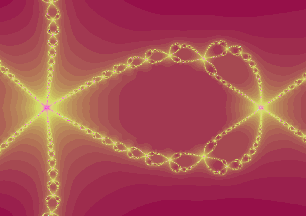July 18, 2007
Emergent Intentionality
 Or, My Fancy Rationale for Indulging in Conspiracy Theories.
Or, My Fancy Rationale for Indulging in Conspiracy Theories.
New Scientist just ran a story on The Lure of Conspiracy Theory. They claim that:
Conspiracy theories can have a valuable role in society. We need people to think “outside the box”, even if there is usually more sense to be found inside the box. The close scrutiny of evidence and the dogged pursuit of alternative explanations are key features of investigative journalism and critical scientific thinking. Conspiracy theorists can sometimes be the little guys who bring the big guys to account – including multinational companies and governments.
I strongly agree with this position, and consider the natural tension between dogged skepticism and flagrant bootstrapping to be a good methodology for fostering creative scientific thought.
But I think the NS story misses an important angle of conspiracy theories that I have been wondering about lately.
The question I have been wondering about is to what extent can group behavior can be understood or characterized as conscious/willful/intentional. How much ideology do members of a group need to share before their behavior can be understood (and perhaps predicted) as an intentional agent? Is postulating intentionality a useful heuristic for understanding group behavior?
I am not going to follow this idea too far in this post, but this position provides an alternative perspective on theories like the idea that all Peace Corp volunteers are CIA agents, and why theories like this become so popular. Our cognitive capacities are poorly equipped to percieve complex emergent behaviors, and postulating intentionality may serve as a natural (and useful) strategy for capturing these patterns.
I personally trace the philosophical genealogy of this idea to Daniel Dennett’s Intensional Stance, but a friend of mine pointed out that this idea can also be found in Madison’s Federalist Paper #10. The main idea behind Dennett’s intensional stance is that we can bracket the deep, hard, ontological questions about the nature of consciousness and simply observe how useful taking the intensional stance is as a heuristic for understanding other people’s behavior. We posit intentionality which yields reliable predictions about agents (philosophical agents, not the ones working for letter agencies) in the world around us. And we don’t limit the intensional stance to other people either – we regularly adopt this stance with animals and machines, often to great utility.
For whatever its worth, labeling something a conspiracy theory sometimes seems like a pejorative, non-rational critique. Heck, Al-Queda is a conspiracy theory (and an open source project, according to Bruce Sterling’s SXSW ’07 Rant), but perversely, it’s the Power of Nightmare‘s attempt to dispel this fabrication that is labeled the conspiracy.
But, I really want to live in a universe in which we actually landed on the moon.
 Filed by jonah at 12:55 am under air,fire,metaphysics
Filed by jonah at 12:55 am under air,fire,metaphysics
 2 Comments
2 Comments


There’s a thoroughly depressing section of Michael Hollebecq’s Elementary Particles where he explains how humans are pattern matching machines–how we see order where there is none. The kicker: apparently pigeons do the same thing.
While I’m willing to agree that we seek intentionality, I think there’s genius in our curiosity. I’m willing to take that along with some humble pie that we’re not the only species that seeks patters.
One of the paradigms that I’m rooting for final destruction in the 21st century is intentionality being related to responsibility. Hopefully, as the panopticon closes in, it will be harder for any person or group to claim that they were not looking in the mirror (‘We have met the enemy….’)
I think conspiracy theories are an artifact of 19th-20th c. institutions specifically designed to diffuse responsibility. Various off-site things are done by companies instead of governments, so the governments have political cover–it’s just the measure of regulation that ends up in dispute. Companies themselves are specifically designed to diffuse liability from the owners. etc.
I’m not saying everyone is responsible for everything (e.g. the ‘Not my government’ shout in protesting the US administration). But, like companies can be liable for policies that encourage, say, racist behavior, larger institutions should become more responsible for the social consequences of how these are set up.
This is all to say that institutions are often created specifically to trap any rhetorical critique in the form of a dismissable ‘conspiracy theory.’ So whether there’s a conspiracy or not, it’s evidence that the system’s wrong.